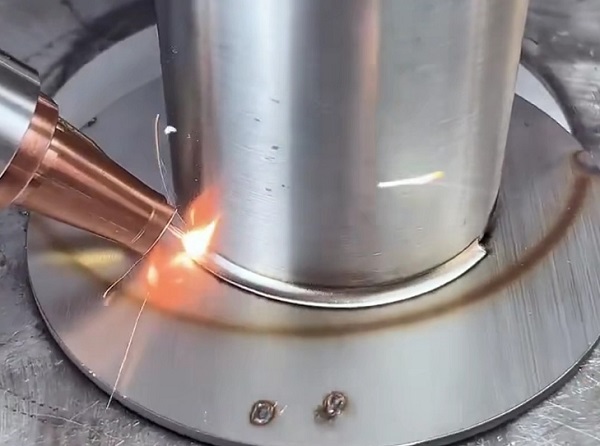What Materials Can a Laser Welding Machine Weld?
Laser welding is one of the most versatile joining technologies available today, widely used in automotive, aerospace, electronics, and medical device manufacturing. For companies considering an investment in laser welding equipment, understanding which materials can be effectively welded is essential for matching the right system to their production needs.

Metals Commonly Welded with Laser Technology
Laser welding machines are primarily used for joining metallic materials. The high energy density and precise control of the laser beam make it ideal for welding a wide range of metals, including:
1. Carbon Steel and Mild Steel
These are among the most commonly welded materials in industrial applications. Laser welding provides deep penetration and minimal distortion, making it suitable for structural components and sheet metal fabrication.
2. Stainless Steel
Known for its corrosion resistance, stainless steel is frequently used in food processing, chemical, and medical industries. Laser welding ensures clean, oxide-free welds without compromising the material’s protective properties.
3. Aluminum Alloys
Aluminum is highly reflective and thermally conductive, making it a challenging material to weld. However, modern fiber lasers operate at wavelengths that are better absorbed by aluminum, enabling stable and high-quality welds in automotive and aerospace components.
4. Copper and Brass
Copper has high thermal and electrical conductivity, which makes it difficult to weld using conventional methods. High-power fiber lasers (typically 1 kW and above) are capable of achieving consistent welds in copper, especially in battery and electric vehicle manufacturing.
5. Titanium and Its Alloys
Used extensively in aerospace and medical implants, titanium requires precise and contamination-free welding. Laser welding offers low heat input and high weld quality, making it a preferred method for this high-performance material.
Can Laser Welding Join Dissimilar Materials?
Yes — one of the key advantages of laser welding is its ability to join dissimilar metals. This is particularly valuable in the automotive and electronics sectors, where combinations like steel-to-aluminum or copper-to-aluminum are becoming more common. Proper parameter selection and filler material use help minimize brittle intermetallic phases and ensure joint strength.
In summary, a laser welding machine can weld a wide variety of metals, including carbon steel, stainless steel, aluminum, copper, and titanium. When selecting a laser welding system, buyers should consider material type, thickness, and application requirements to ensure optimal performance and long-term value.
Recent Posts
- What are the advantages of laser welding machines in lithium battery pack production lines?
- What issues should be noted when choosing a lithium battery pack production line?
- Quality Inspection and Control of Lithium Battery Module Pack Production Line
- Cell grouping and sorting process in lithium battery module pack production line
- What are the safety hazards of lithium battery pack production lines and how can they be prevented?
INQUIRY

